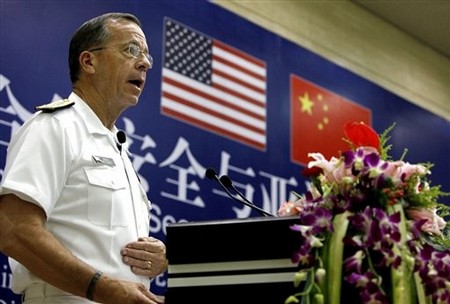China and the law of the sea.

Much of the brewing tension in the South China Sea hinges on how various claimants view existing international law. Patrick Cronin analyzes:
Similarly, China and the United States have fundamentally different interpretations of the United Nations Convention on the Law of the Sea (UNCLOS). One major difference is over whether and which type of military activities are permitted within the 200-nautical mile exclusive economic zone (EEZ) of a nation. Chinaâ??s national interests and growing confidence lead to an expansive view of its EEZ and a narrow view of which military activities are permissible for a foreign nation to undertake within an EEZ. Such activities must be peaceful, and Chinese nationalists donâ??t consider intelligence gathering even by non-warships to be peaceful. The United States, on the other hand, not only contends that such information gathering is entirely within international law, but also that the United States has an obligation to periodically test the premise in order to maintain what it considers the global public good of freedom of the seas.
Lyle Goldstein doesn't seem to buy it:
Washington's focus on "freedom of navigation," which has inexplicably become the main pillar of current U.S. policy in the region, is actually rather absurd. China, the world's largest maritime trading nation by almost any measure, is very unlikely to threaten navigational freedoms -- its own economy is almost wholly reliant on those very freedoms. The claim that China's opposition to regular U.S. military surveillance activities in the South China Sea threatens "freedom of navigation" is likewise disingenuous and represents an unfortunate tendency to reach for the clever sound bite. In fact, such U.S. surveillance activities all along China's coasts are excessive to the point of seriously disrupting the bilateral relationship and should thus be decreased, especially if linked to concrete progress on Chinese military transparency.
This piece also dives into the legal issues surrounding U.S.-China tensions.
[Hat tip: Larison]
(AP Photo)



